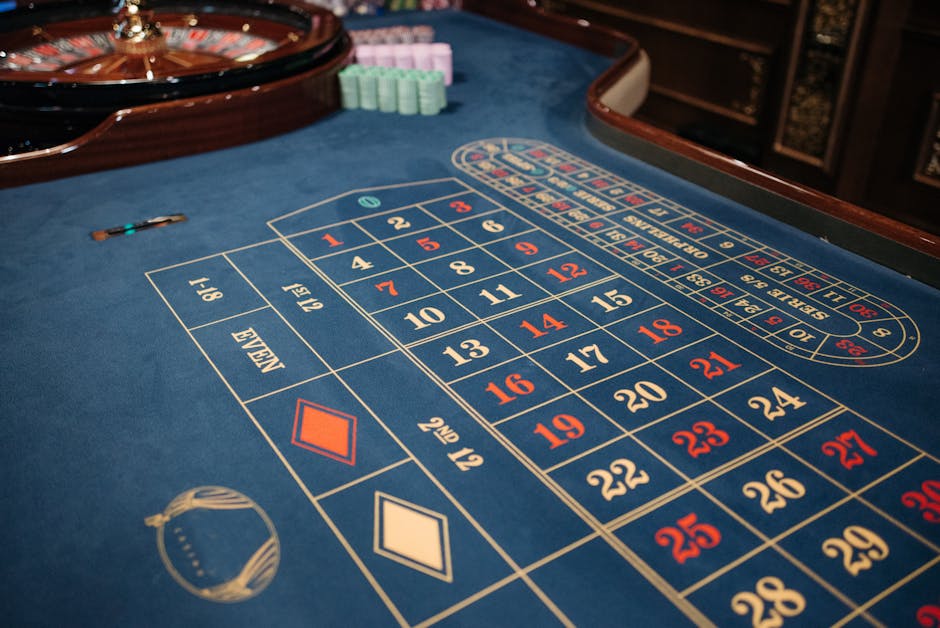Introduction
Online gaming isn’t just about reflexes and gear—it’s a mental game. The best players know that psychology plays a bigger role in performance than most realize. Pressure, decision-making, emotional control, even motivation—all of it affects how you play and whether you win.
In competitive and casual online environments alike, players aren’t just up against others—they’re up against themselves. Tilt can tank a match. Overconfidence can cost a win. And the drive to keep going, even when you’re exhausted or chasing losses, is often more about impulse than strategy.
This guide is built to strip away the fluff and show you how to play smarter, not just harder. We’ll dig into how your brain behaves in high-pressure gaming, what tricks it pulls, and how to train it to work with you—not against you. If you want to level up, learn the mental side of the game first.
Understanding Player Motivation
People don’t pour hundreds of hours into online games by accident. At the root of it all is a simple human truth: we chase feelings. Games are engineered to deliver them. Achievement, competition, and escape—that’s the trifecta.
Achievement hits first. Game designers build systems that reward progress constantly: unlock a new skill, finish a quest, beat a level. That quick dopamine hit makes your brain hungry for more. It mimics real-life success—but faster, cleaner, and without the mess.
Then there’s competition. Whether it’s climbing ranked ladders or bragging rights in a guild, rivalry pulls players back. You’re always one win (or loss) away from the next tier, and that kind of unfinished business sticks in your head. Matchmaking systems make sure you always feel close to a breakthrough—because when you’re close, you keep playing.
Finally: escapism. For a lot of players, games are a break from pressure, boredom, or noise. Logging on becomes a reset button. You get new worlds, clear rules, and instant feedback—all of which real life rarely offers.
And platforms know exactly how to keep that loop going. Reward systems—XP bars, loot boxes, daily missions—create structured reasons to come back. Leveling doesn’t just track progress; it teases what’s next. Even small rewards at regular intervals keep players engaged longer than most attention spans are built for.
It’s not magic. It’s design. Smart players don’t just play—they understand what’s pulling the strings.
Cognitive Biases That Impact Your Gameplay
The mind is a powerful ally—and sometimes your worst enemy at the table. Online games, especially those involving real money or ranking systems, are full of psychological traps. Here are three of the most common ones wrecking decision-making.
The Gambler’s Fallacy: “I’m due for a win”
This belief sounds harmless, even hopeful. You’ve lost five rounds in a row, so the next one must be a win, right? Wrong. Games with random outcomes (slots, card draws, loot crates) reset every time. Past losses don’t increase your odds—they only mess with your mindset. Don’t chase; calculate.
Sunk Cost Fallacy: Quitting isn’t always losing
Let’s say you’ve poured hours or money into a game, grinding for progress. Feeling stuck, but continue anyway? That’s sunk cost. It tricks you into throwing good time (or cash) after bad just because you’ve already invested. Smart players know when something isn’t paying off—and walk away before it gets worse.
Loss Aversion: Fear leads to bad calls
We feel losses harder than we feel wins. That emotional bias makes us overly cautious or overly reckless. Some players clutch their chips and shrink from opportunity; others get tilted and try to win it all back too fast. Either way, fear is making the call—not strategy. Recognize that, reset, and play clear.
Knowing these biases won’t make you invincible. But knowing means being honest with your mind—and that makes you a tougher player.
Emotion and Impulse in Real Time
Online gaming isn’t just strategic—it’s emotional. Fast-paced decisions, high-stakes moments, and unexpected outcomes can all trigger powerful emotional responses. Managing those responses is what separates casual players from consistent winners.
The Impact of Adrenaline on Gameplay
Adrenaline can sharpen your senses—but it can also lead you astray. When you’re fully engaged in a competitive match:
- Your heart rate increases, narrowing your focus
- Decision-making becomes faster, but sometimes riskier
- You may overreact to losses or unexpected turns
While adrenaline can help with reflexes and reaction time, unchecked emotional arousal can impair rational judgment.
Recognizing and Handling Tilt
“Tilt” is the gamer term for emotional frustration that clouds your ability to think clearly. It happens when you’re:
- Losing repeatedly or unfairly
- Getting provoked by other players
- Making mistakes and mentally spiraling
How to Cool Down:
- Take a break: Step away from the screen for a few minutes
- Reset your mindset: Remind yourself it’s just one match, not a whole identity
- Use rituals: Deep breathing or stretching between games can help regulate your emotions
Being aware of tilt before it escalates is key to regaining control.
Calm > Reactive
Staying calm in high-pressure situations is a proven competitive edge. Reactive players often make emotional, impulsive choices. Calm players, on the other hand:
- Make decisions based on strategy, not frustration
- Recover faster from setbacks
- Build consistency over streaky, up-and-down gameplay
The smartest players treat their emotions like part of the game—they manage them just like they would any in-game resource. The result? More clarity, better results, and fewer regrets.
Smart Habits for Better Outcomes
Creating consistency and control in your online gaming habits doesn’t just improve your win rate—it protects your mental well-being and financial stability. Below are key strategies that smart players use to stay in the zone without letting the game take over.
Define Your Limits Before You Play
Successful players treat gaming like any other investment of their time and attention—they set clear boundaries.
- Time caps: Start with daily or weekly gaming limits to avoid burnout or time creep.
- Budget limits: Decide the maximum amount you’re willing to spend before each session, and never chase losses.
- Break schedules: Insert regular cooldown periods between sessions to reset and evaluate your choices.
Pro tip: Treat gaming limits like safety rails—not restrictions, but reinforcement for better performance.
Stay Focused, Stay Detached
Emotional control is one of the most underrated game-changers.
- Use predefined strategies: Avoid making impulsive in-game decisions by preparing your moves ahead of time.
- Mute distractions: Turn off non-essential notifications and limit multitasking during serious sessions.
- Reframe loss: Don’t take bad outcomes personally—use them as feedback, not emotional triggers.
How Top Players Build Routine Discipline
Elite players succeed because they treat habit-building like a skill. Their routines aren’t just about practice—they’re about mental conditioning.
- Pre-game prep: Set up your space and mind before playing—clear goals equal better results.
- Post-game review: Reflect honestly on your gameplay to identify patterns, both mental and strategic.
- Habit stacking: Link gaming goals to daily habits (e.g., review strategy after morning coffee) to increase repeatability.
Further Reading
If you want to dive deeper into shaping smart gaming routines, check out:
Managing Your Bankroll in Online Gaming
This read offers additional insights into keeping control while maximizing enjoyment in competitive environments.
Social Dynamics in Online Gaming
Online gaming isn’t just a solo grind—it’s social theater. Parties, squads, guilds, and even temporary matchups come with invisible expectations. Sometimes it’s motivation. Sometimes it’s straight-up pressure. Your crew wants one more round. You don’t, but you stay. Why? Because dropping out feels like letting people down. That’s peer pressure, and it hits harder than most players admit.
Competitive lobbies amp it up even further. Here, trash talk isn’t just background noise—it’s a way to define status. Win consistently, and you’re rewarded with praise (and sometimes envy). Lose too often, and people notice—maybe even mute or bench you. Toss in leaderboards and constant performance tracking, and what used to be fun now comes with an echo of judgment.
Then there’s the dopamine loop—the hit from winning, leveling, unlocking. It’s not random. These platforms are designed to light up your brain just enough to keep you logging on. Add social perks like badges or rare cosmetic gear, and chasing status becomes a full-time mental tug-of-war.
So when do you step back? Easy: when group dynamics shift from collaborative to exhausting. When you’re playing just to keep up, not because you want to. Playing solo can reset your compass. It cuts the noise, helps you relearn how to enjoy the game on your terms. But don’t ditch the group every time things get hard—some battles are worth fighting together. Know the difference.
Long-Term Mental Health & Gaming
Finding Balance Between Screen Time and Real Life
Gaming can be a rewarding escape—but not when it takes over your life. Long hours at the screen can disrupt sleep, social life, and physical health. To play smart long-term, it’s important to create boundaries that protect your well-being.
Tips to manage screen time:
- Set daily or weekly gaming time limits
- Schedule screen breaks every 60–90 minutes
- Use gaming as a reward after real-life tasks, not a default activity
Spotting Burnout and Gaming Addiction
Even the most passionate players can hit a wall. Burnout often shows up as irritability, exhaustion, or a sudden loss of enjoyment in games. More severe cases involve addiction patterns—skipping meals, losing sleep, or hiding how much you play.
Common warning signs:
- Using gaming to avoid problems or feelings
- Feeling anxious or restless when not playing
- Neglecting responsibilities at home, work, or school
- Losing interest in previously enjoyable non-gaming activities
If any of these feel familiar, you’re not alone—and it’s okay to ask for support. Many gamers benefit from taking structured breaks, talking to professionals, or joining recovery communities.
Build a Healthy Relationship With Gaming
Gaming should enhance your life, not replace it. Create rituals that anchor your gameplay in positive habits.
Ways to maintain a positive mindset:
- Reflect on what you enjoy about your favorite games (is it the story, the challenge, or the social connection?)
- Reward yourself for walking away after a healthy session
- Combine gaming with real-world goals: stream for a cause, learn a new skill, or connect with like-minded communities
Ultimately, the smartest players know when to press pause. Playing with awareness, balance, and intention keeps gaming a fulfilling and sustainable part of life.
Final Thoughts
Playing smart doesn’t stop at learning the mechanics or memorizing odds. It’s a mindset—a way of approaching the game with awareness, control, and patience. The players who last, and the ones who win more often, know that mental clarity can be more valuable than any strategy guide.
That means managing your emotions, especially when stakes are high or outcomes feel unfair. It’s knowing when to pause, when to walk away, and when to push forward with purpose. Top players train more than their reflexes—they train how to respond, how to stay even when things tilt sideways.
Mindset also means managing your bankroll with intention. Don’t chase. Don’t overspend. Don’t lean on luck to fix mistakes. If you respect your limits, the game stays fun—and fair.
This isn’t about taking the fun out of gaming. It’s about protecting it. When you stay sharp, stay in control, and treat the experience with respect, you’re not just playing—you’re playing smart.



